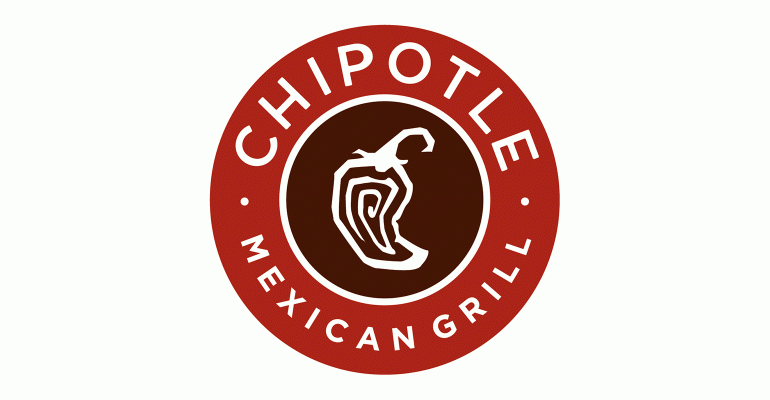 This post is part of the On the Margin blog.
This post is part of the On the Margin blog.
Chipotle Mexican Grill Inc. lost $620 million in sales in 2016, the year after a series of foodborne illness outbreaks at its restaurants.
Those sales have all but disappeared.
It’s long been clear that Chipotle’s problems didn't benefit its competitors. Data from the new NRN Top 100 report proves this. Not only did Chipotle competitors not benefit, but their sales growth actually slowed.
According to NRN data, Chipotle’s systemwide sales fell 14 percent in its latest fiscal year, which was to be expected.
Qdoba Mexican Eats' system sales during its latest fiscal year increased 8.3 percent, or $62.7 million.
Similarly, Moe Southwest Grill’s system sales increased 7.5 percent, or $48.2 million.
Theoretically, both chains were the beneficiaries of Chipotle’s problems. In both cases, however, the chains’ sales growth represented a slowdown from the previous year.
In the previous year, Qdoba’s system sales increased 12.5 percent, while Moe’s increased 12 percent. If the chains were benefitting from a market leader in distress, they would have seen growth improve, not weaken.
The Top 100 chains are ranked based on system sales, which is a better analysis of a company’s performance because it takes into account organic sales growth and new-unit growth to get total sales demand for a restaurant.
The inability of those fast-casual Mexican chains to take sales from Chipotle during its down year suggests that consumers’ decisions on where to eat are more nuanced than we think. Consumers apparently don’t decide to eat at a fast-casual Mexican restaurant before picking Chipotle. They pick Chipotle first. When Chipotle ceased being an option, they chose something else altogether.
But what did consumers pick, if not for Chipotle's two biggest competitors? Two popular suggestions are Taco Bell, because it is a Mexican chain, and Panera Bread Co., which has restaurants near Chipotle units. But neither of those are obvious answers, either.
Taco Bell’s domestic system sales increased a robust 6 percent, or $533.6 million, in its latest fiscal year. But much like the other Mexican chains, those numbers represent a slowdown from the previous year, when system sales increased 7.7 percent, or $631 million.
Similarly, Panera Bread’s $4.9 billion in system sales rose 7.3 percent in its latest year, a healthy dose of growth, but slower than the previous year, when sales grew 7.9 percent.
McDonald’s Corp. is another chain that has been suggested as benefiting from Chipotle’s problems. The burger giant did in fact increase system sales by more than $551 million, accelerating its prior year growth of $390 million. But for a chain with $35 billion in system sales, $551 million is chump change, up just 1.5 percent, and likely all of it from higher menu prices.
My theory is that Chipotle’s sales were spread far and wide based on location, not only including big concepts, but also upstarts that have been gunning for the chain’s staked-out position on responsibly prepared food.
Or maybe consumers just didn’t eat out at all — 2016 was a bad year overall, as we know. So perhaps Chipotle’s customers just stayed at home and watched Netflix while eating a meal they prepared from Blue Apron.
Whatever the reason, in the consumer’s mind, at least, there is no “fast-casual Mexican sector.”
Jonathan Maze, Nation’s Restaurant News senior financial editor, does not directly own stock or interest in a restaurant company.
Contact Jonathan Maze at [email protected]
Follow him on Twitter: @jonathanmaze

